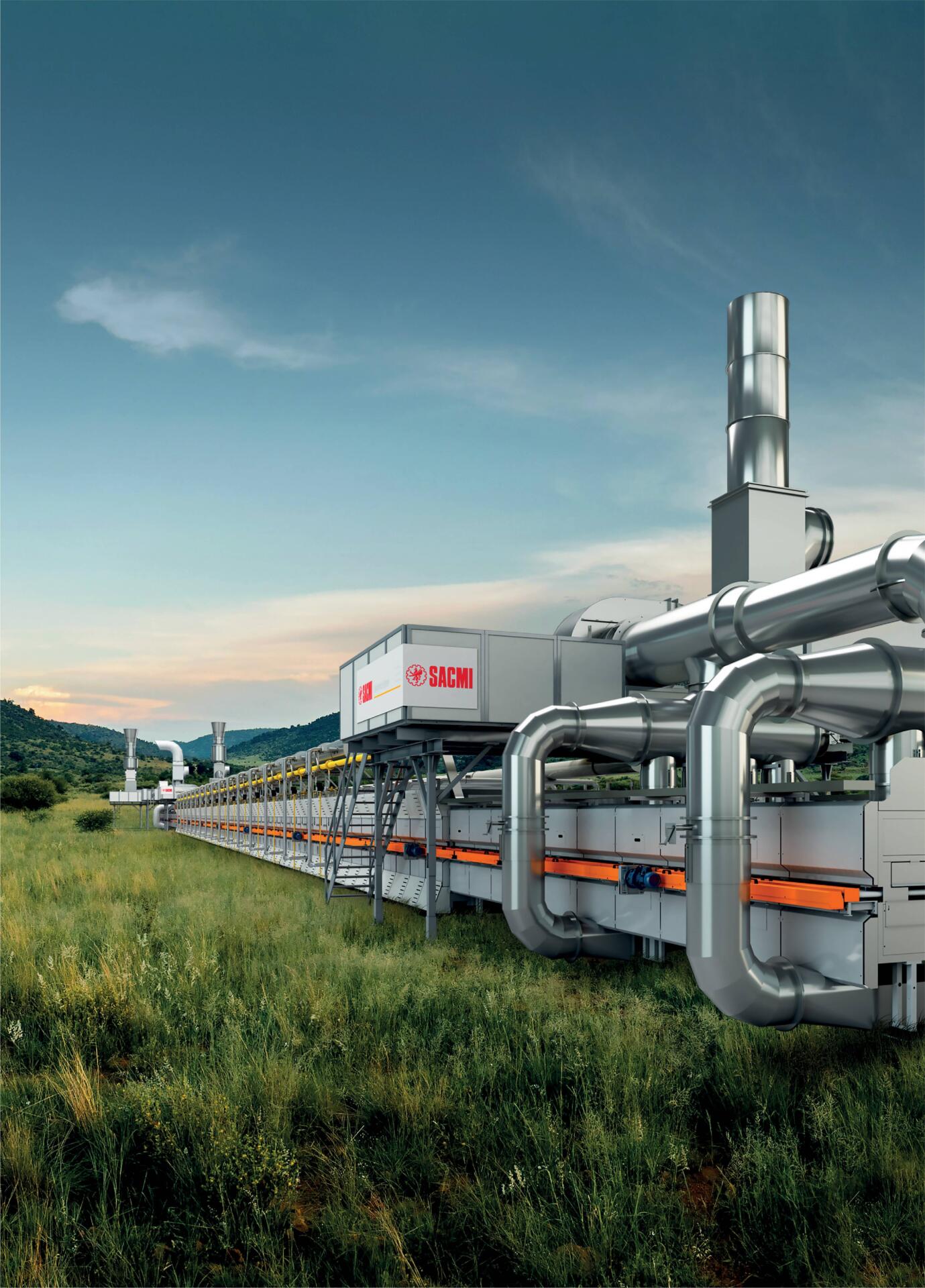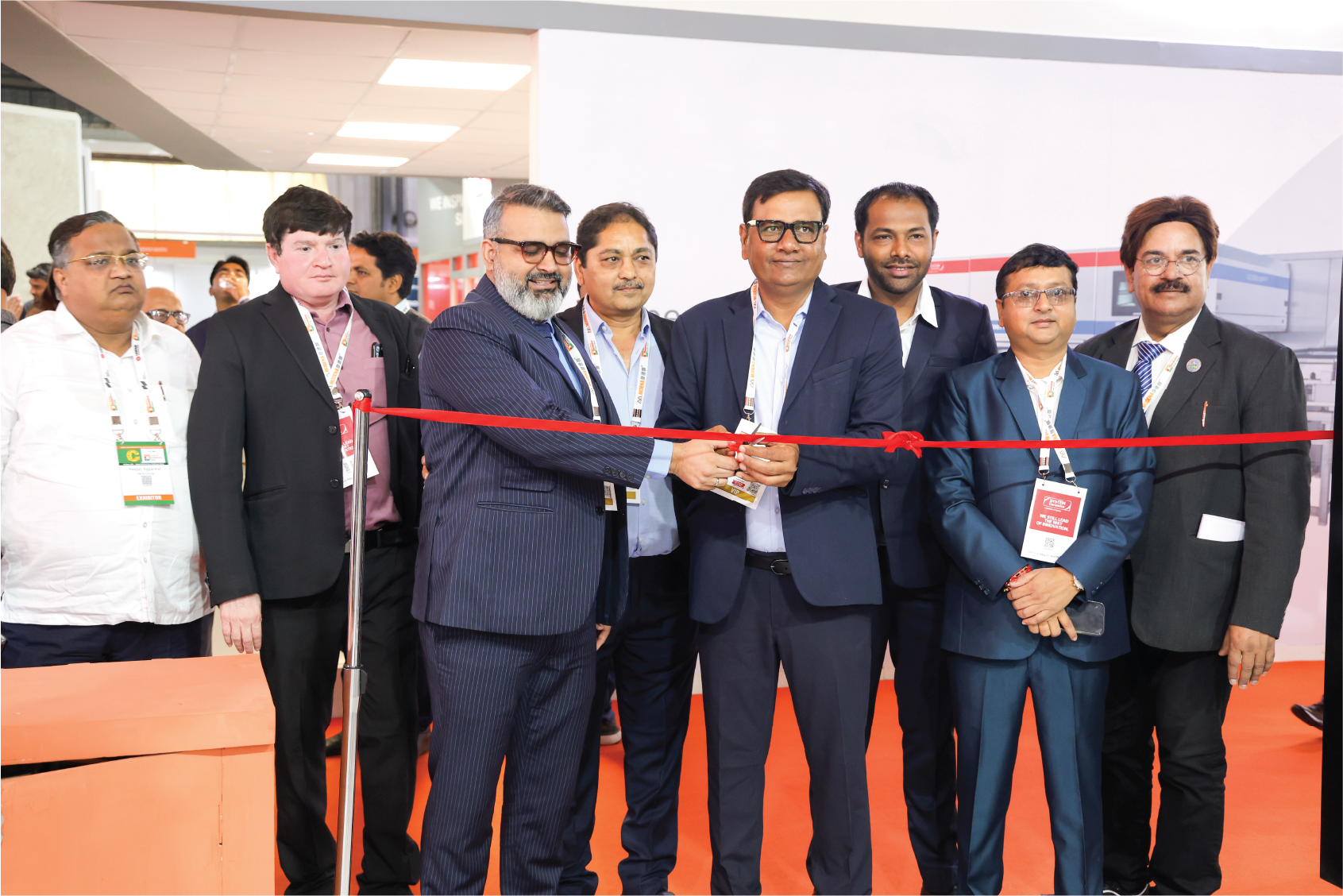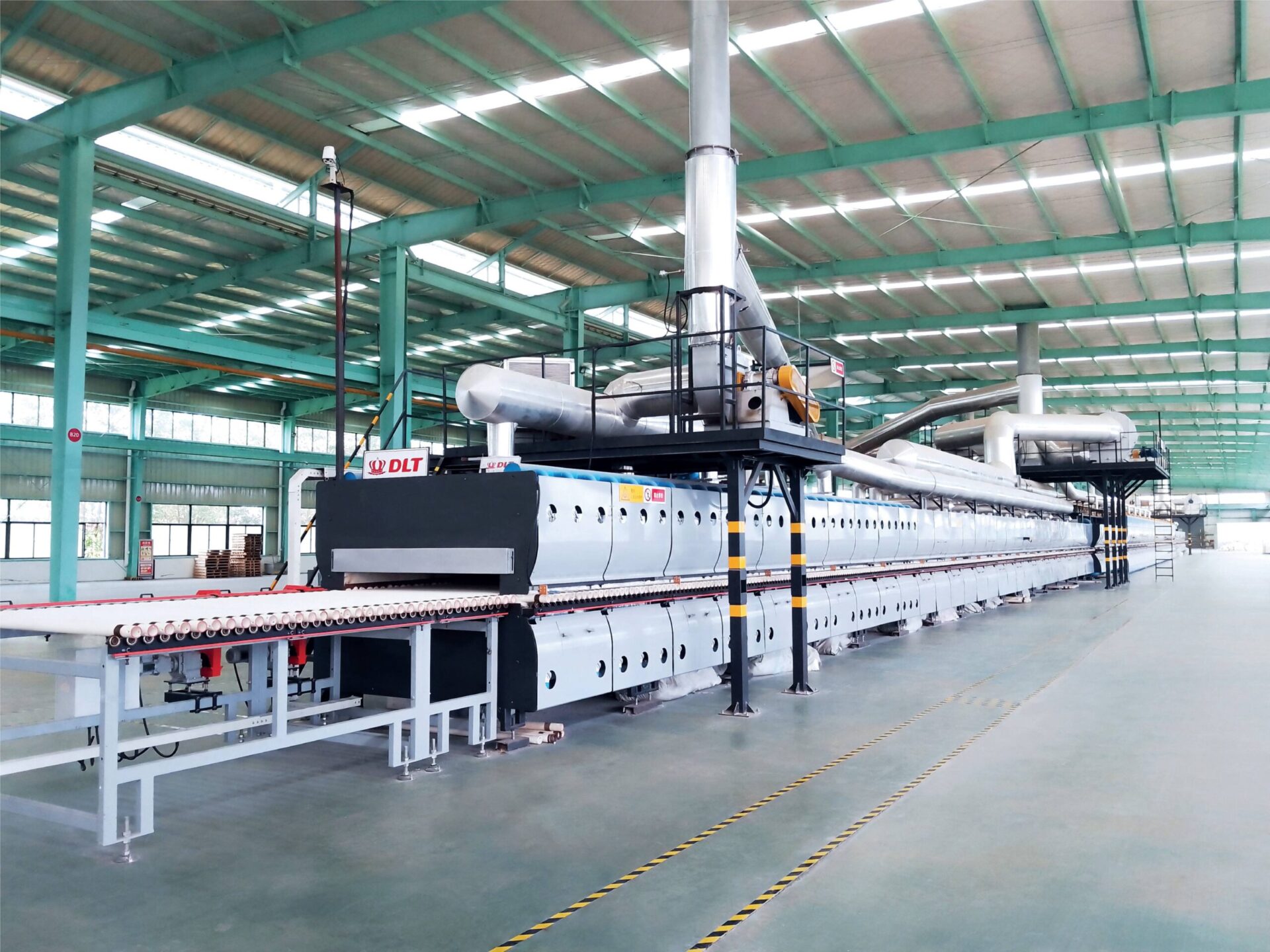
China’s ceramic industry has achieved a historic milestone in the goal of carbon neutrality. After nearly one year’s hard research work, the world’s first piece of ceramic tile fired with zero-carbon fuel was successfully produced in Oceano Test Center, giving a great technological support to the building ceramic industry in realising the target of Carbon Peak and Carbon Neutral. It was announced at a press conference in Foshan Xianhu Lab on December 23, 2022, the world’s first piece of ceramic tile f ired with zero-carbon pure ammonia fuel has successfully exited the Ammonia-fueled Roller Kiln at Oceano Test Center.
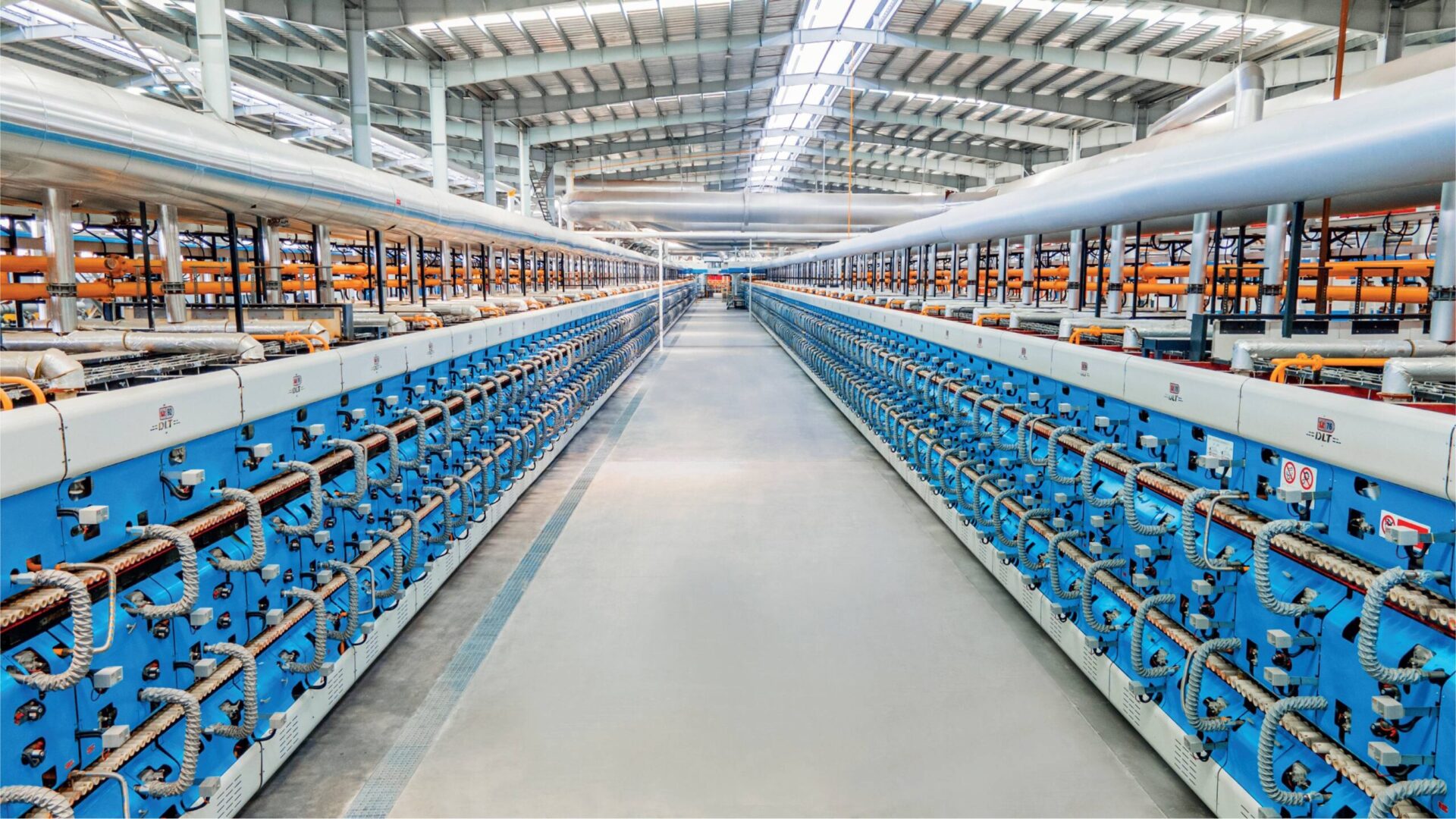
The Associated R&D Center on Advanced Zero-carbon Combustion Technology was jointly established by Foshan Xianhu Lab, Oceano Ceramics and DLT Technology on December 27, 2021. HLT & DLT are the world’s leading suppliers of complete plant equipment for the ceramic sector. To provide turnkey project solutions to the global ceramic industry, Foshan HLT DLT Technology has been the first tunnel kiln that integrated green, low-carbon, and intelligent automation for the Chinese ceramic machinery industry to enter. Headed by Academician Mr. Cheng Yibing, a strategic scientist working at Foshan Xianhu Lab, as Chief Director of the center, the lab was aiming at the key technology of zero-carbon combustion in ceramic kilns to explore new solutions for Chinese ceramic industry. By giving full play to the advantages of the three parties in terms of production, developing and research, the center has developed the “ammonia-hydrogen fusion zero-carbon combustion technology” as well as key systems and solutions for the industrialisation. The center has developed a new series of pure ammonia type and natural gas – ammonia mixture type industrial burners with related auxiliary technologies, having realised stable ignitions in DLT industrial experiment kiln fueled with mixed ammonia and pure ammonia, showing good control of nitrogen oxides emission in compliance with the national standards. This achievement has confirmed for the first time the practical feasibility for the ceramic industry to achieve carbon peak and carbon neutral technology’s industrialisation in the future, marking an important milestone for the industry. The f iring of ceramics with zero-carbon fuel is a disruptive technical innovation, having filled up blanks of both domestic and international, showing a new energy technological path for the ceramic industry as well as for the whole of building material industry to achieve carbon peak and carbon neutral goal with great practical significance.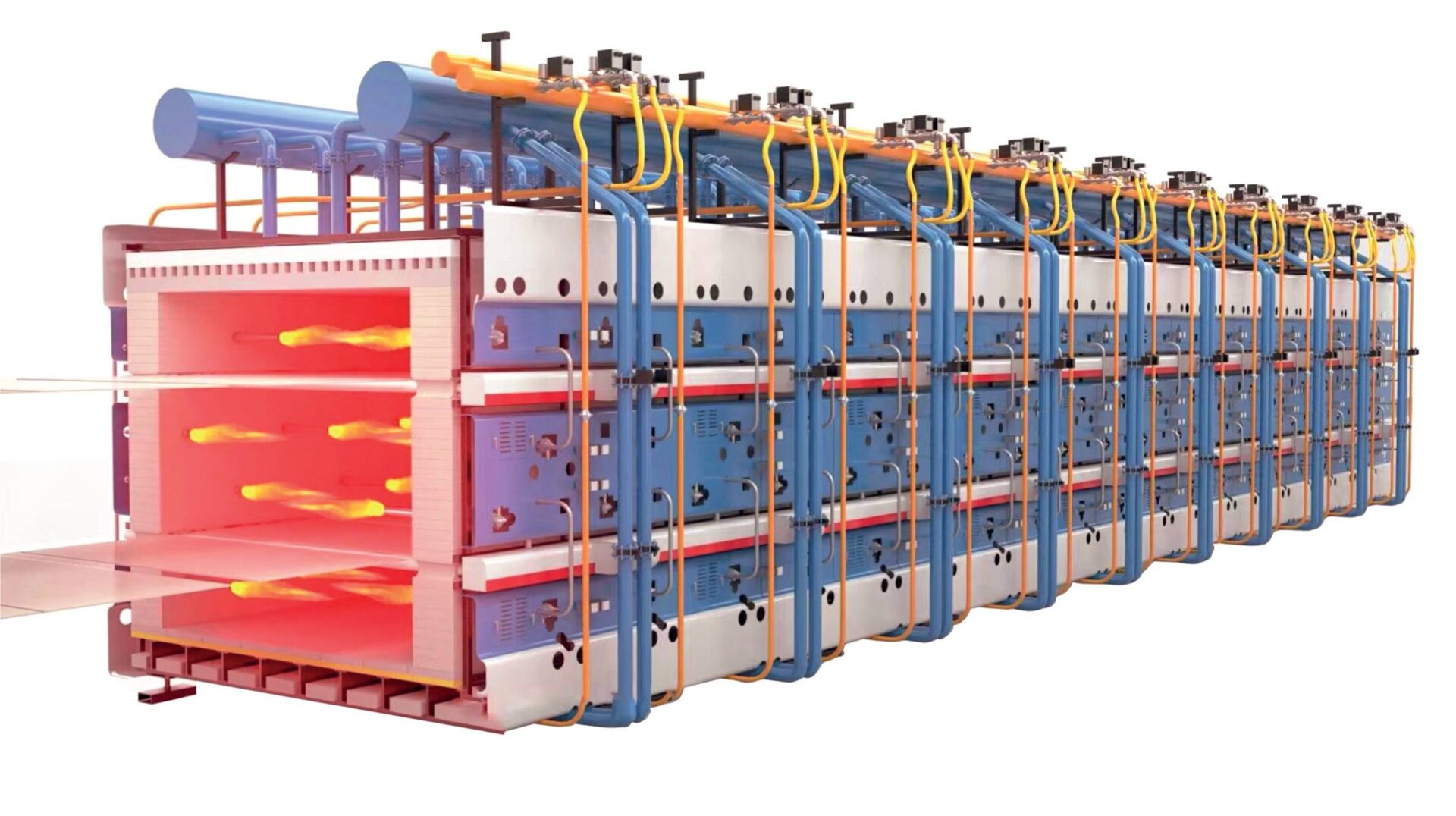 While developing the zero-carbon combustion technology, the team also established a set of safety system and emergency management measures suitable for ammonia-fueled ceramic kilns, including operating procedures, ammonia storage, transportation and other important aspects. Based on this, the team successfully completed the update of Oceano’s ceramic roller kiln by converting the kiln from natural gas fueled mode into pure ammonia and natural gas – ammonia mixture fueled mode. Moreover, it has also developed a precision control system for liquid ammonia evaporation and supply, which is monitoring system for residual ammonia in the fume, and has jointly developed a complete set of high-efficiency liquid ammonia SCR de-nitrification system as well as other technologies and equipment. suitable for the pure ammonia combustion, an online On December 18, 2022, the kiln fueled with 100% ammonia (NH3) successfully produced glazed and unglazed tiles with continuous tile feeding and production. Tested by Oceano Research & Development Center, the quality of finished tiles is above the national standard. According to the on-site test by a third-party environmental assessment agency, the exhausted fume emission of the kiln complies to the national standard.
While developing the zero-carbon combustion technology, the team also established a set of safety system and emergency management measures suitable for ammonia-fueled ceramic kilns, including operating procedures, ammonia storage, transportation and other important aspects. Based on this, the team successfully completed the update of Oceano’s ceramic roller kiln by converting the kiln from natural gas fueled mode into pure ammonia and natural gas – ammonia mixture fueled mode. Moreover, it has also developed a precision control system for liquid ammonia evaporation and supply, which is monitoring system for residual ammonia in the fume, and has jointly developed a complete set of high-efficiency liquid ammonia SCR de-nitrification system as well as other technologies and equipment. suitable for the pure ammonia combustion, an online On December 18, 2022, the kiln fueled with 100% ammonia (NH3) successfully produced glazed and unglazed tiles with continuous tile feeding and production. Tested by Oceano Research & Development Center, the quality of finished tiles is above the national standard. According to the on-site test by a third-party environmental assessment agency, the exhausted fume emission of the kiln complies to the national standard.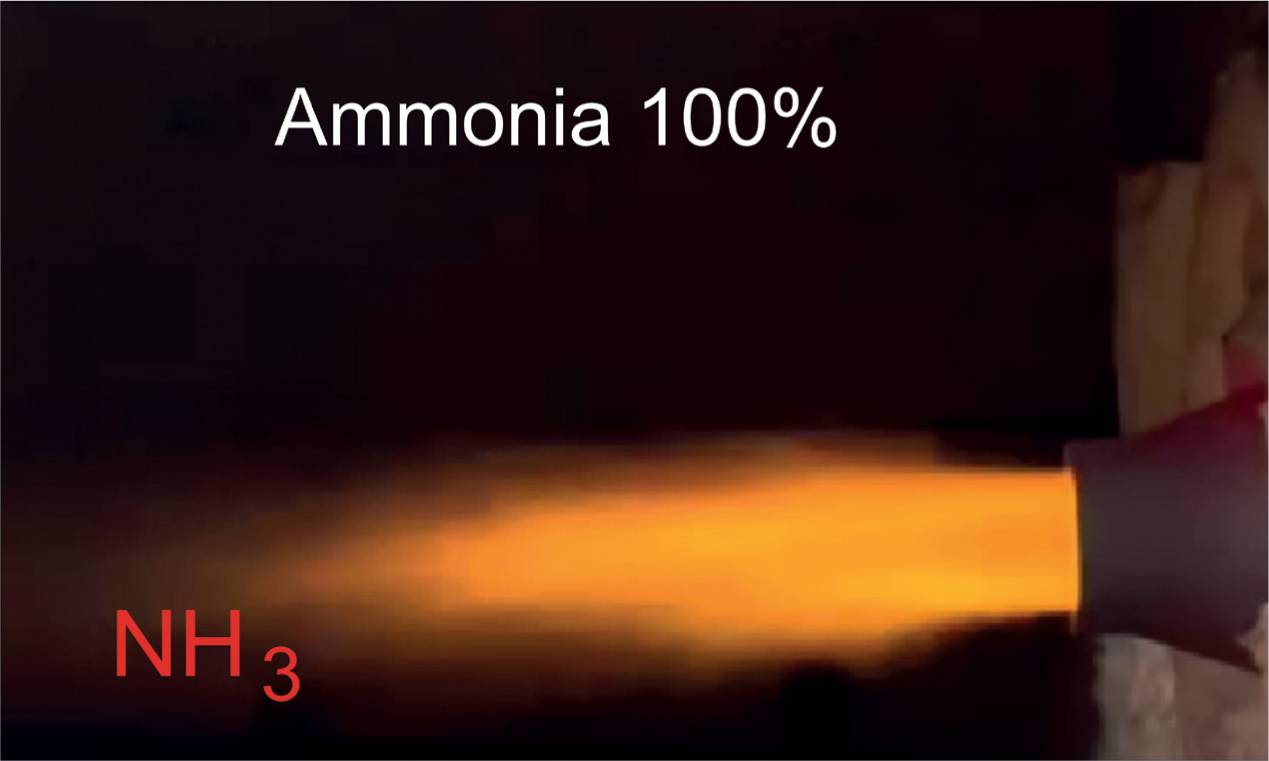 As the first thermal equipment manufacturer to participate in the research and development of Ammonia-Hydrogen Zero-Carbon Combustion Advanced Technology, DLT has been focusing on the energy saving and emission reduction of kilns and dryers for the ceramic industry, and has been contributing greatly to the industry’s carbon consumption reduction in order to undertake its social responsibility. In future, the Associated R&D Center on Advanced Zero-carbon Combustion Technology will be further utilised in the application of mass production in the industry on the basis of the results from this pilot production, and will keep breaking through and optimising the new technology adapting with mass production, as a contribution to the ceramic industry as well as the building material industry to achieve the goal of carbon peak and carbon neutral, in order to create a disruptive technological path leading from “0” into “1” as being the first time in the world.
As the first thermal equipment manufacturer to participate in the research and development of Ammonia-Hydrogen Zero-Carbon Combustion Advanced Technology, DLT has been focusing on the energy saving and emission reduction of kilns and dryers for the ceramic industry, and has been contributing greatly to the industry’s carbon consumption reduction in order to undertake its social responsibility. In future, the Associated R&D Center on Advanced Zero-carbon Combustion Technology will be further utilised in the application of mass production in the industry on the basis of the results from this pilot production, and will keep breaking through and optimising the new technology adapting with mass production, as a contribution to the ceramic industry as well as the building material industry to achieve the goal of carbon peak and carbon neutral, in order to create a disruptive technological path leading from “0” into “1” as being the first time in the world.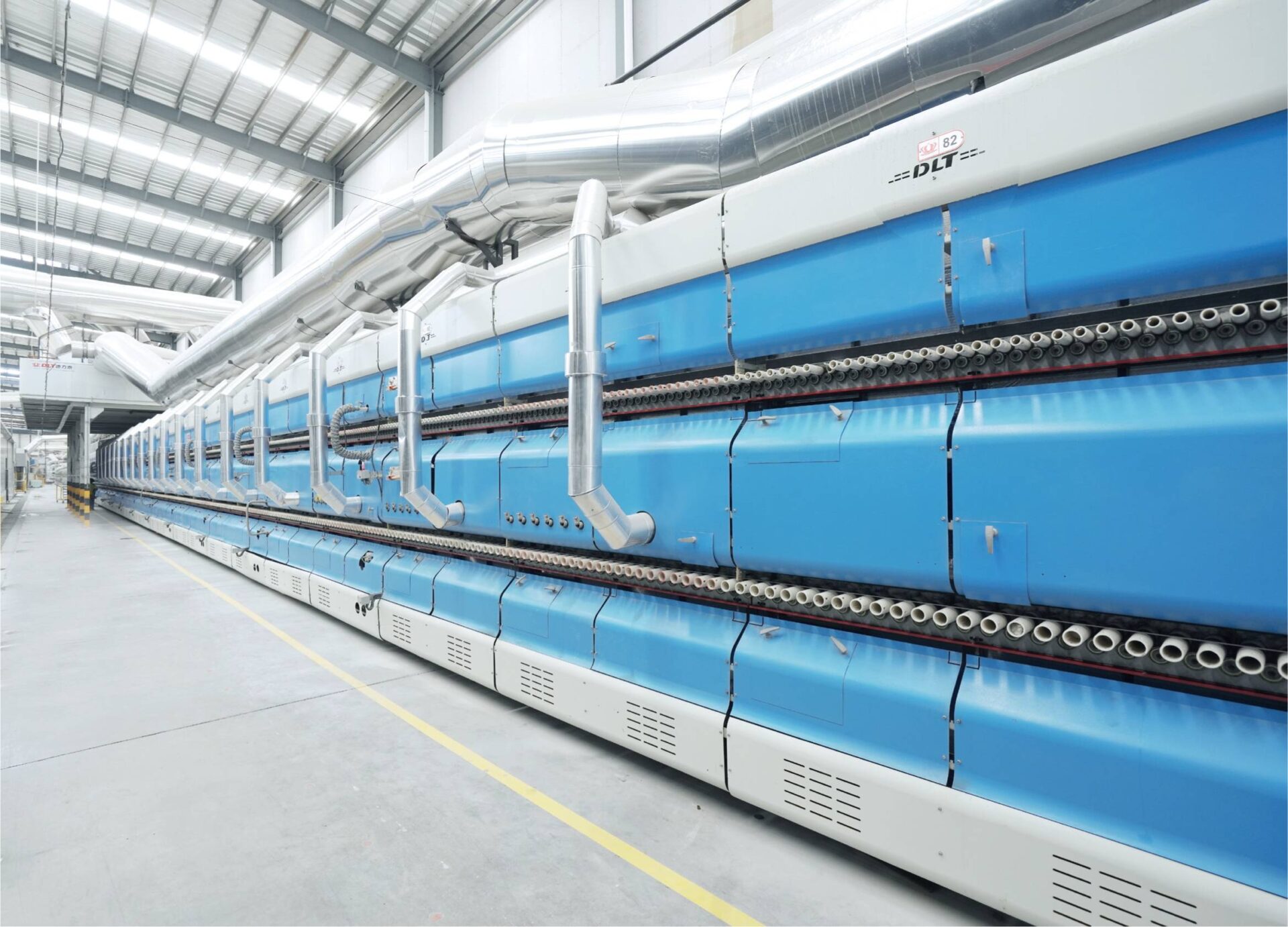 Project Initiation: Ammonia-Hydrogen Zero-Carbon Combustion Tech When the zero carbon combustion chemical equation appeared on the screen of the launch ceremony, it marked a significant breakthrough in carbon neutrality technology. On December 28, the “Advanced Ammonia-Hydrogen Zero-Carbon Combustion Technology Demonstration Project for Ceramic Slab and Tile Mass Production Line” (“Ammonia Hydrogen Zero Carbon Combustion Project”) was officially launched at the headquarters of Monalisa Group. This is a new path explored by Monalisa in collaboration with Foshan Xianhu Laboratory, DLT, Oceano, Guangdong Anqing Technology and other companies to build ceramic zero carbon manufacturing and green development, which marks a major step forward for the industrial application of carbon-neutral technology in China’s ceramics industry, and is of great significance for accelerating the green and low-carbon transformation and development of the industry.
Project Initiation: Ammonia-Hydrogen Zero-Carbon Combustion Tech When the zero carbon combustion chemical equation appeared on the screen of the launch ceremony, it marked a significant breakthrough in carbon neutrality technology. On December 28, the “Advanced Ammonia-Hydrogen Zero-Carbon Combustion Technology Demonstration Project for Ceramic Slab and Tile Mass Production Line” (“Ammonia Hydrogen Zero Carbon Combustion Project”) was officially launched at the headquarters of Monalisa Group. This is a new path explored by Monalisa in collaboration with Foshan Xianhu Laboratory, DLT, Oceano, Guangdong Anqing Technology and other companies to build ceramic zero carbon manufacturing and green development, which marks a major step forward for the industrial application of carbon-neutral technology in China’s ceramics industry, and is of great significance for accelerating the green and low-carbon transformation and development of the industry.
Ammonia-hydrogen Zero-Carbon combustion technology to explore the optimal solution for the path of carbon neutrality and emission peak. With the current carbon neutrality and emission peak strategy, hydrogen energy and ammonia energy, as renewable green energy sources with high energy density, good storage and transportation convenience, clean and efficient energy, have gradually become an important part of the future energy system and are energy terminals.
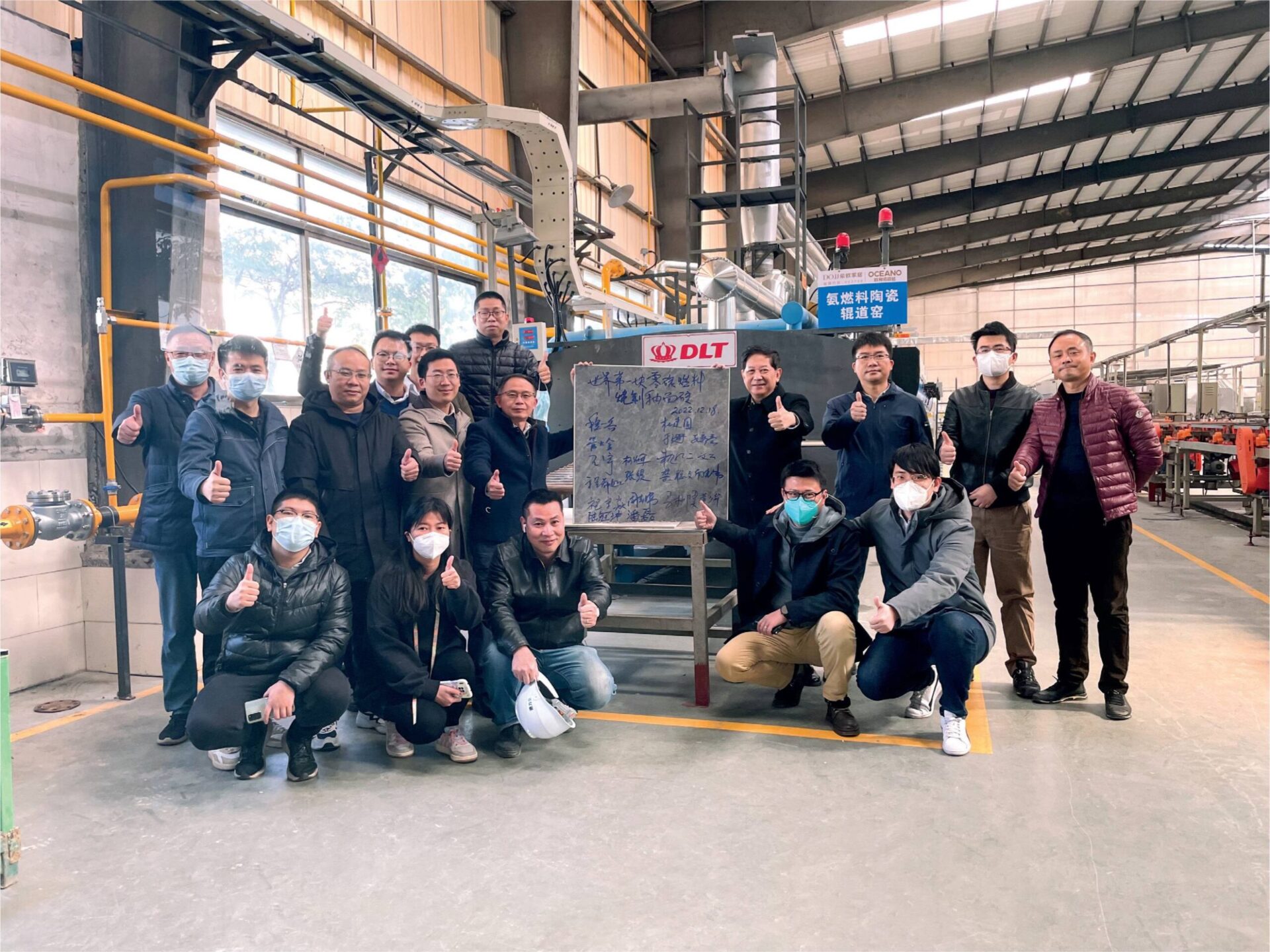
At present, the ammonia-hydrogen zero-carbon combustion technology has successfully completed technical tests and demonstration production in the Oceano’s experimental kiln. In order to promote the industrial application of ammonia hydrogen zero carbon combustion technology, Monalisa has joined the industrialisation research project of this technology and launched the demonstration project. Based on the developed advanced ammonia hydrogen zero carbon combustion pilot test and pollutant emission detection and control pilot test, the advanced ammonia hydrogen zero carbon combustion technology for ceramic slab and tile mass production line is developed on the 118A mass production line of Mona Lisa Group’s Foshan Xiqiao headquarters base. According to estimates, after the implementation of the ammonia-hydrogen demonstration project, if the mass production technology is applied to 160 ceramic slab and tile production lines in Foshan, it will directly reduce carbon emissions by 6,50,000 tons and the manufacturing industry will reduce carbon emissions by 67 million tons. If this technology can be used in high-temperature plants, ceramics factories, building materials manufacturers etc., the carbon reduction effect is significant.
A BCMEA Report





